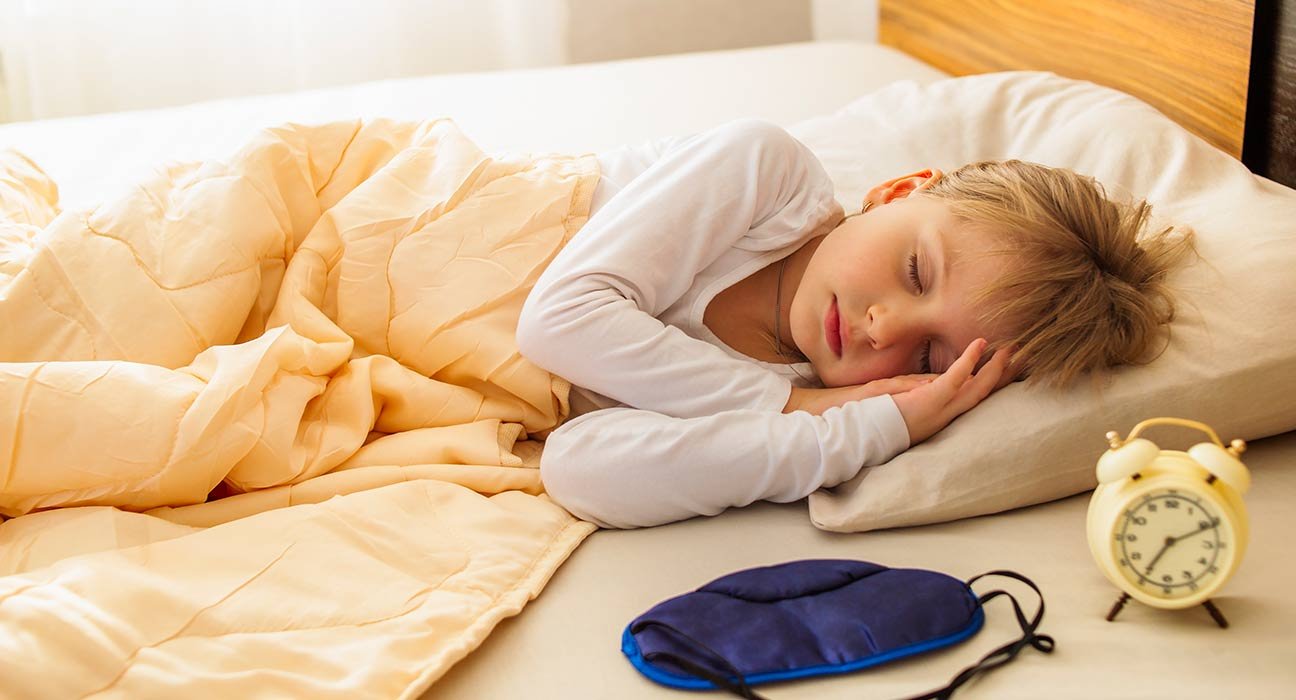According to recent research, when kids have disturbed sleep patterns for a prolonged period, the chances of psychosis and other mental illnesses increase drastically. How to define enough sleep? NHLBI study states sleeping hours according to age. Infants need maximum sleep ranging from 12-16 hours a day, these hours are reduced as they grow. Children till 12 before entering teenage require 9-12 hours of sleep as well.
Why do kids need more sleep?
It is the time for their maximum growth. Both the brain and body need energy to achieve all developmental milestones timely. Sleep is one of the most crucial steps in development and growth be it in terms of physical, cognitive, or social growth.
What is psychosis?
Psychosis is a mental condition in which a person can lose its contact with reality. It is difficult for a person dealing with Psychosis to identify and differentiate what is the reality and what not. The Indian Journal of Psychiatry describes approximately 1.5 Crore Indians dealing with severe mental illnesses like psychosis.
What can cause poor sleep in kids?
Various diverse factors can be the root cause for children who have inefficient time for sleep. Some of the common risk factors are:

Parent’s routine:
Parents are the primary caregivers for children. Kids learn directly as well as incidentally from their parents. They imitate their parent’s behavior and so their sleeping schedule. Parents can encourage their kids to have efficient sleep.
Medical condition:
Any health concern that is disturbing the child physically can significantly affect the quality of sleep in his or her routine. It is important that any sleep disorder or medical condition is recognized timely, and then awareness about its impact on sleep is acknowledged appropriately with the right intervention can help bring a smooth flow to sleeping patterns.
Sleep Environment:
The immediate surroundings in which a child sleeps play a major contributing role in sleeping habits. The food consumed before sleeping, how dark is the room, what is the temperature of the room in which the child is sleeping. Noise disturbance is an essential element for sound sleep, especially in children of age around 6 years.
Screen Time:
With daily lifestyle shifting for a blend with technology, children are also exposed to radiation from phones, tablets, and laptop screens. These screen interfaces have exposure to quite a high amount of radiation, especially blue rays which is certainly not suitable for sleep, along with other side effects on health. Screen time should be limited to at least half an hour before going to bed.
Making sure the right amount of sleep in children
Routine:
Following a routine is the first and most significant measure to ensure enough sound sleep. Maintaining a consistent of time for going to bed can help the circadian rhythm of the child (the biological clock of the body for all 24 hours of a day.)
Activities before bedtime:
Make sure your child is not following any active tasks before sleeping so that the body and its nervous system are not stimulated too much. Children are more active than adults; their enthusiasm for everything can create an obstacle to a healthy sleeping environment. Reading is one of the most common as well as efficient habits for healthy sleeping.
Moreover, for healthy sleeping patterns in children, it is first and foremost required to the aware that kids need much more sleep than adults because they are in their developing period where energy and rest are mandatory elements.
References+
- Morales-Muñoz I, Marwaha S, Upthegrove R, Cropley V. Role of Inflammation in Short Sleep Duration Across Childhood and Psychosis in Young Adulthood. JAMA Psychiatry.
- Published online May 08, 2024. doi:10.1001/jamapsychiatry.2024.0796
- https://urls.grow.me/xQeq3CrJRH
- Morales-Muñoz I, Marwaha S, Upthegrove R, Cropley V. Role of Inflammation in Short Sleep Duration Across Childhood and Psychosis in Young Adulthood. JAMA Psychiatry. Published online May 08, 2024. doi:10.1001/jamapsychiatry.2024.0796
- Reddy VM, Chandrashekar CR. Prevalence of mental and behavioural disorders in India : a meta-analysis. Indian J Psychiatry. 1998 Apr;40(2):149-57. PMID: 21494462; PMCID: PMC2965838.













Leave feedback about this